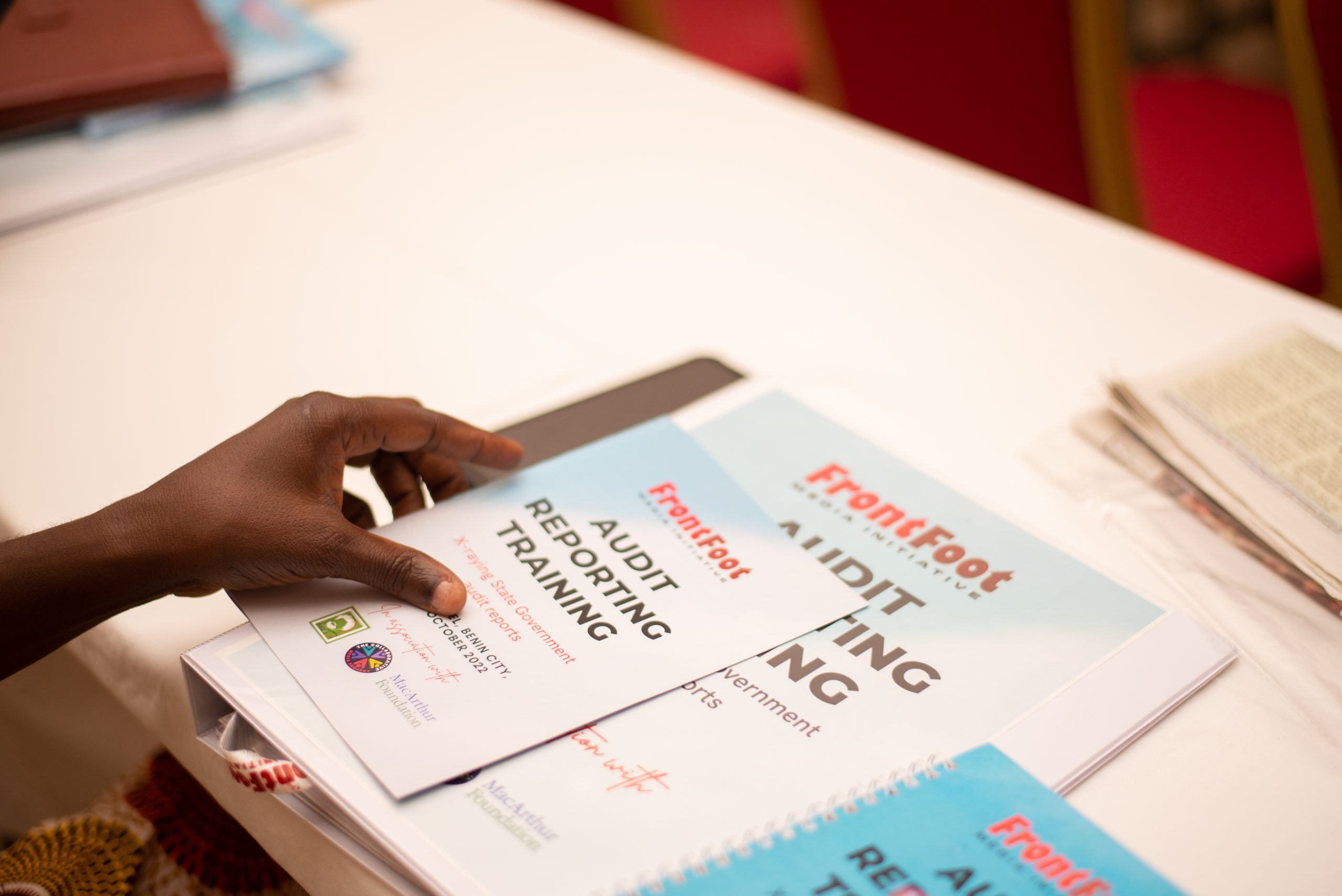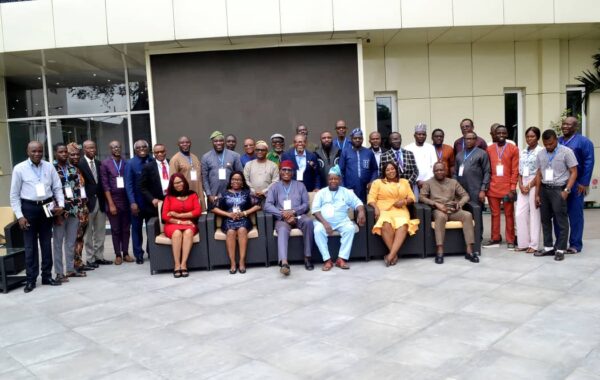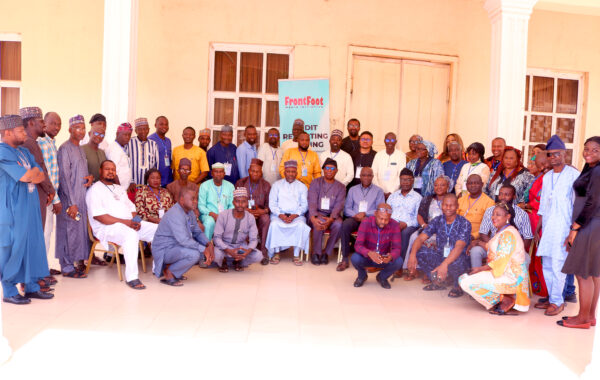Auditors are independent servants of the Nigerian constitution and report only to the People, experts affirm at Audit Reporting workshop
- Governors can appoint but cannot remove Auditors-General
- Auditors-General serve until retirement or death
Experts at the first Audit Reporting Training for the media have underlined the primacy and authority of auditors in public finance in Nigeria and urged a recognition of their significance and powers.
“The Auditor-General is responsible only to the People through the House of Assembly, and once appointed, can remain in office until he retires or dies. That makes him a powerful, independent institution and servant of the constitution”.
Sonala Olumhense, syndicated columnist across several platforms, asserted on Wednesday 5 October at the Audit Reporting Training organised by FrontFoot Media Initiative that the media should also observe their constitutional obligation of holding government accountable to citizens to do a better job of reporting state audit reports.
Olumhense was one of four media experts who spoke at the event. The others were Mr Sully Abu and Mr Emeka Izeze, both also directors of FrontFoot Media Initiative and Mr Chido Nwakanma, Training Coordinator.
Two financial experts also addressed the 32 participants at the Benin venue of the workshop. Chief Chukwuemeka Joe Anika, a Fellow of the Institute of Cost and Corporate Accountants (FCCA) and Mr Godswill Ochenogor, accountant, harped on the criticality of doing proper audits of state government accounts.
Mr Omenogor noted, Public sector auditing helps to create suitable conditions and reinforce the expectation that public sector entities and public servants will perform their functions effectively, efficiently, ethically and in accordance with the applicable laws and regulations. The success of the public sector is measured by its ability to deliver services successfully and programs that are equitably and appropriately carried out. Therefore, the auditors are there to protect the core values of the public sector as it serves citizens.”
Olumhense on the independence of the Auditor-General asserted that the Governor appoints but cannot remove the auditor-general unilaterally. “The Auditor-General of a state is appointed by the Governor on the recommendation of the State Civil Service Commission and confirmed by the House of Assembly. The Auditor-General is not accountable to the governor or supervised by the governor or any other authority”.
Olumhense pointed out six pillars of the position of Auditor-General in the 1999 Nigerian constitution. The AG “audits the public accounts of the State and all offices and courts of the State within ninety days of receiving the Accountant General’s financial statements and annual accounts of the State, and in turn submits his reports to the House of Assembly for the consideration of the committee responsible for public accounts”. Auditors-General have powers to conduct periodic checks and audits, governors cannot remove them without the approval of two-thirds of the state
assembly, while auditors once appointed should remain in office until retirement or death.
Auditors-General must also conduct a mandatory audit and report to the State house of assembly at the appointed time every year, which is ninety days after receiving the accounts from the Accountant-General of the state.
Olumhense noted: “In other words, the financial statement of the Accountant-General cannot, and must not be misconstrued to be the same as the report of the Auditor-General. In a country in which people often tend to reject, or at least resist, the notion of accountability, these elements are of central public interest.
Sully Abu charged journalists to be courageous, ethical, and conscientious in unfolding the contents of audit reports that often go unreported. Emeka Izeze, a former editor and managing director of The Guardian newspapers, showed the participants various pathways to generating needed information and urged creativity in reportage of subjects such as the audit reports of states.
Nwakanma spoke on the principles and elements of public interest reporting and urged participants to deploy solutions and investigative journalism to the task of reporting state audit reports as a way of pursuing accountability.
The Audit Reporting Training-X-raying State Government Audit Reports is a flagship capacity development programme of FrontFoot Media Initiative. It is a Collaborative Media Engagement for Development Inclusivity and Accountability Project, a targeted training of journalists. FrontFoot Media Initiative is undertaking the project under the auspices of the Wole Soyinka Centre for Investigative Journalism (WScIJ) and the sponsorship of the MacArthur Foundation.
Participants came from traditional print, broadcast, and online media platforms. Participants engaged actively as most saw it as a new area of reportage.
Israel Adebiyi, Head of News and Current Affairs at Super FM, Benin stated in a note to the organisers: “It was an insightful period that offered renewed challenges to journalists as agents of change and accountability. Be assured that the importance of the training is not lost on me, and a step-down training is already being planned for news staff in Super 88.1 FM.”
The next session of the Audit Reporting Training will hold in Awka, Anambra State on 19-20 October. There will be sessions in 2023 and 2024 as part of a phased roll out.
SIGNED Chido Nwakanma
Training Coordinator, FrontFoot Media Initiative
9 October 2022



